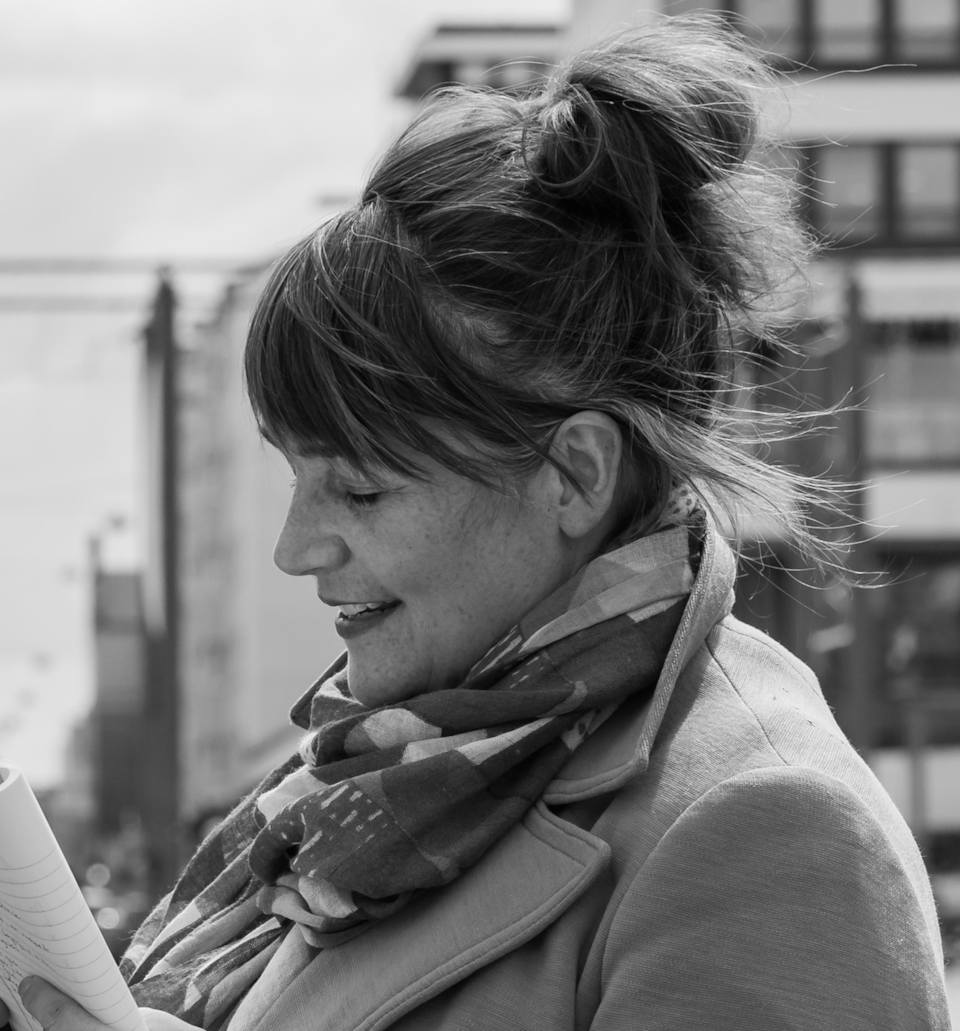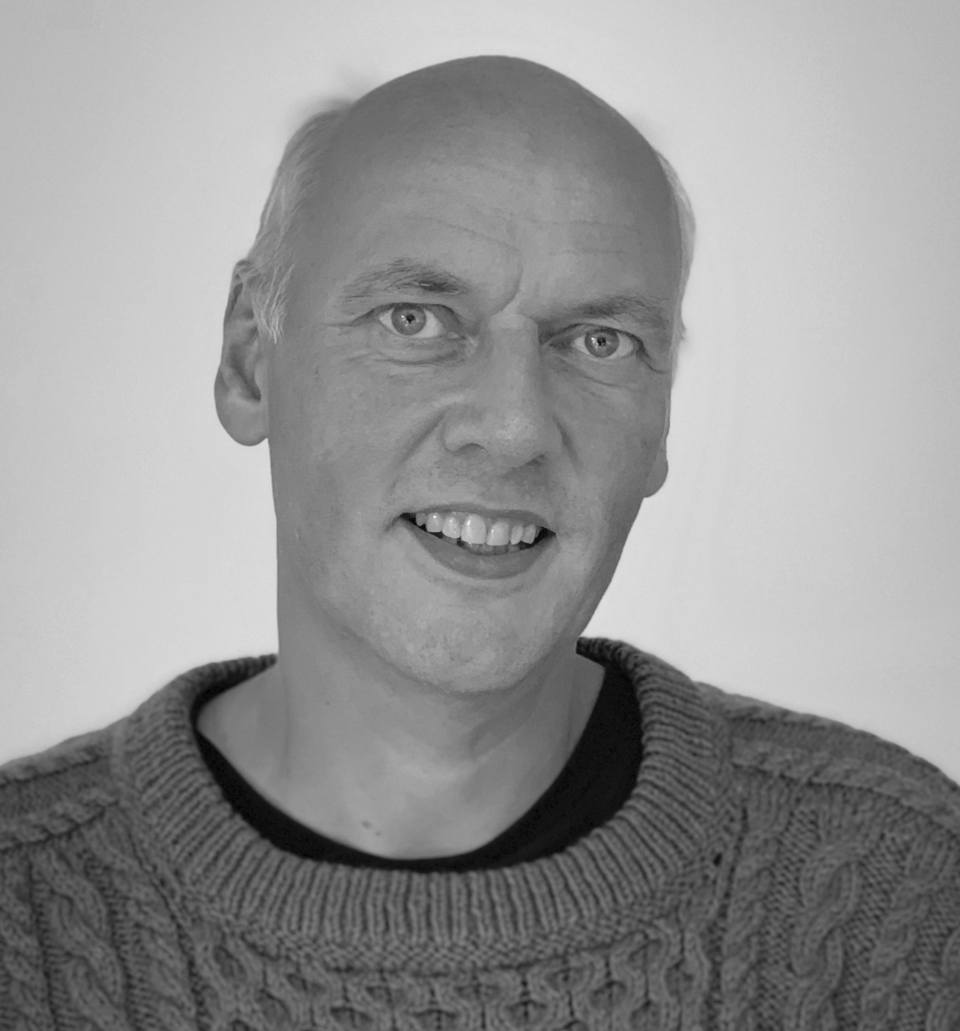Keynotes
Emma Cocker
Soft Letting of Language:
Listening for Emergent Wor(l)ds

Operating under the working title Not Yet There, writer-artist Emma Cocker’s research unfolds through a dual enquiry: How to bring to reflective awareness the live and lived — yet often hidden or undisclosed — experience of artistic thinking-in-action especially within collaboration, whilst simultaneously searching for linguistic means capable of operating in fidelity to that embodied experience? This two-fold enquiry involves an attempt to become more attuned to the affective realm of energies, emergences and intensities operating before, between and below the more recognisable gestures of artistic process and practice. Infra — below. Intra — inside, within. Inter — between, amongst. Here, the focus is less towards what is produced through practice, but rather to attend to the experience of thinking-feeling-knowing therein. In parallel, this enquiry has called for the evolution of various language-based artistic research practices for attempting to speak with, through and from (rather than necessarily about) the experiential and relational dimensions of collaborative co-creation. Cocker’s research often unfolds through collaboration with other artistic researchers within durational projects where a studio-residency or site-specific context becomes a live ‘laboratory’ for shared exploration, for testing different ‘ecologies of practice’. Over the last decade, Cocker has evolved a complex web of conversation-based and experimental reading practices, conceived as tentative methods for inviting immanent, intersubjective modes of verbal-linguistic sense-making emerging through different voices enmeshed in live exchange. This process involves the revelation of a nascent artistic-poetic vocabulary, where linguistic content is not already known in advance, but rather emerges in and through the working-with of language. Transcript materials generated from recorded conversations become re-activated and re-organised through various experimental reading practices where fresh insights and understanding happens through unexpected conjunctions, (re)combinations, the circling and looping of language. In this performative presentation, Cocker draws on her recent collaborations to explore how the ethico-aesthetic practice of listening (and being listened to) has become a vital thread within her enquiry: listening as receptivity and open-ness within collaborative co-creation; listening as affective attunement during the ‘turning together’ of conversation; listening as an act of returning, repeating and re-engaging through the slow process of transcription; listening as the basis of dialogic and kairotic sense-making within improvisational spoken-word. Rather than grasping at sense or meaning, listening is approached as a practice of attention enabling the soft letting of language, in turn, the potential of emergent wor(l)ds.
Emma Cocker is a writer-artist and Associate Professor in Fine Art, Nottingham Trent University, UK. Her research includes diverse process-oriented, dialogic-collaborative and aesthetic-poetic approaches to working with and through language, involving an ecology of embodied, relational and performative writing, reading, conversation and listening-based practices. Cocker often works with other artistic researchers on durational projects, where the studio or site-specific context becomes a live laboratory for collaborative exploration. Cocker was a key-researcher in the PEEK-funded project Choreo-graphic Figures: Deviations from the Line, 2014 – 2017. She was a contributing artistic researcher in Ecologies of Practice, Research Pavilion, Venice, 2019; and was co-editor of ‘Practices of Phenomenological and Artistic Research’, a Special Issue of Phenomenology & Practice, 2022. She is co-founder of the Society for Artistic Research Special Interest Group for Language-based Artistic Research, 2019. Cocker has published artistic research in JAR (Journal of Artistic Research), RUUKKU and VIS (Nordic Journal for Artistic Research). Her writing is published in Failure, 2010; Stillness in a Mobile World, 2011; Drawing a Hypothesis: Figures of Thought, 2011; On Not Knowing: How Artists Think, 2013; The Creative Critic: Writing as/about Practice, 2018; Live Coding: A User’s Manual, 2022; Writing Choreography: Textualities of and beyond Dance, 2024, and the solo collections, The Yes of the No, 2016, and How Do You Do?, 2024.
www.not-yet-there.blogspot.com
www.researchcatalogue.net/profile/?person=16148
Trond Lossius
Listening as a Way of Not Yet Knowing

To listen can mean pausing from outward action to receive, take in, and contemplate one's surroundings. To listen is to open up to and be challenged by the environment, community, culture, and ideas one is surrounded by and embedded within. To listen is to willingly destabilise oneself, daring not to know, and instead accept and enter into a world that repeatedly reveals itself as different from how one previously knew it. Listening is to let go of control and embrace questions more than desire answers.
Gradually, I have realised that such ways of listening have always saturated my artistic practice, literally and metaphorically. Fresh out of composition studies, I transitioned from composing scores intended for concert performances to working on computer-based sound installations. I got involved with collaborative and transdisciplinary projects, which exposed me to the worlds of other artists and concerns beyond music, informed by discourses in fine arts and performance arts. Developing sound in galleries and museums as part of installations that might also contain paintings, video or objects, I had to listen to and be sensitive towards acoustics, architecture, site, artistic concepts and audio-visual relations to develop site-specific or site-adjusted works affording the audience to listen and take time. Spatial audio became an essential means of engaging with the site and offering the audience an experience of being present within the resulting environment. Additionally, the various projects often required custom software development, and engaging with software's affordances, preconceptions, and limitations implied listening to the tendencies and forces driving tech development.
For over ten years, I have developed a field recording practice using surround (ambisonic) microphones, primarily in suburban areas. Rather than recording sound, these recordings capture a sense of place. To understand something, I have found it more valuable to operate at the margins rather than at the centre. It is at the edges that something is negotiated and becoming. Working between sound, music and fine arts, with software still in flux, within artistic research while still in the making, is to position myself where I continuously have to ask what this is and can become. From this position, I do not yet know; instead, I can listen and be alive.
Trond Lossius investigates relations between sound, place and space in field recordings, audio-visual installations and collaborative cross-disciplinary projects. Using surround (Ambisonic) microphones, he records places rather than sounds, primarily engaging with suburban sound environments. The Atmospherics (River Deep, Mountain High) is an ongoing collaborative project since 2014 with Jeremy Welsh. The project researches notions of “place” explored through field recording in sound and video that capture unique qualities from rural and urban areas. The material is processed and edited to realise large-scale audio-visual installations. He has previously worked with the contemporary performance group Verdensteatret, winner of the New York Dance and Performance Awards, a.k.a. The Bessies. He develops open-source software for spatial audio and real-time media for his projects, and he has published research on sound and music computing in international conferences and journals. Trond Lossius holds an MA in geophysics, studied music composition at The Grieg Academy, and has a PhD in artistic research from the Academy of Fine Art, Bergen National Academy of the Arts. He has formerly been Head of Research at the Oslo National Academy of the Arts. He is currently a professor and Head of PhD at The Norwegian Film School, Inland University of Applied Sciences and Professor II at The Grieg Academy, The University of Bergen.